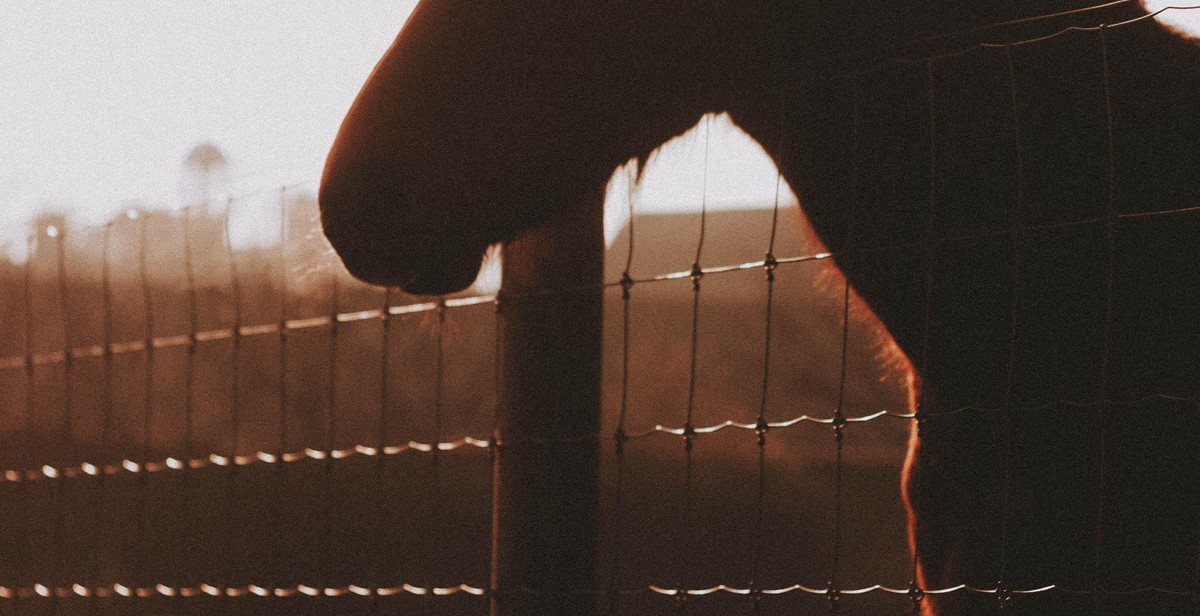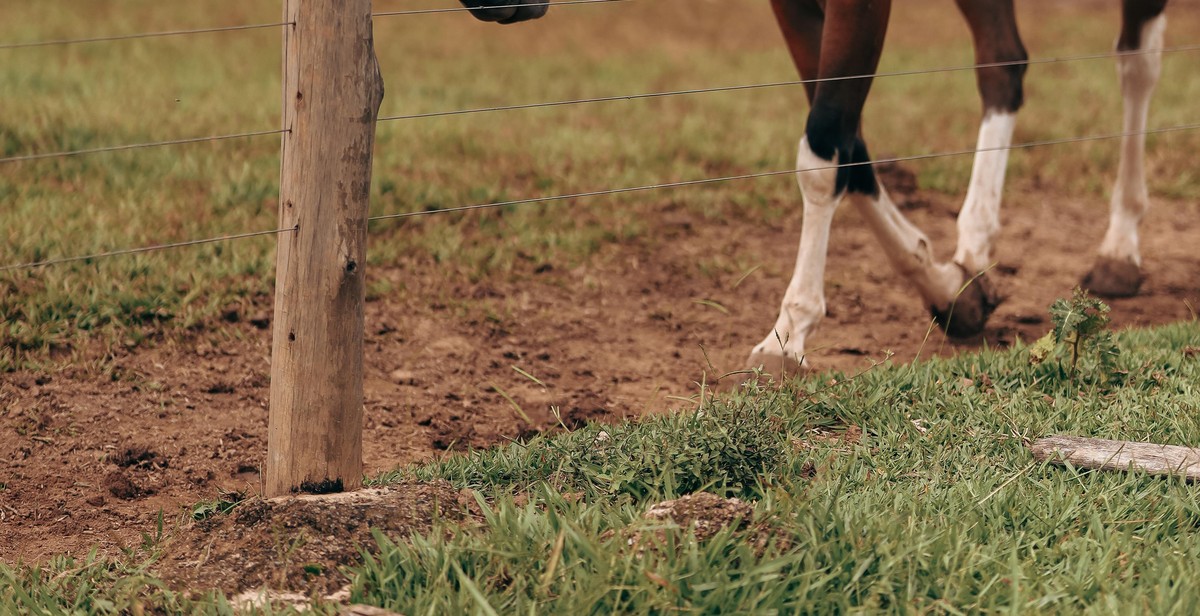How to Choose the Right Fencing Style for Your Horse Property: Options and Considerations
As a horse owner, ensuring the safety and security of your equine companion is a top priority. One of the most essential features of any horse property is a durable and reliable fence that will keep your horse within its boundaries while also protecting them from external threats. However, choosing the right fencing style for your horse property can be a daunting task, given the wide variety of options available in the market.
Factors to Consider
When selecting the right fencing style for your horse property, there are several factors to consider. These include:
- The size of your property and the number of horses you own
- Your budget
- The terrain and topography of your property
- The climate and weather conditions in your area
- The level of maintenance you are willing to provide
Options Available
Some of the most popular fencing options available for horse properties include:
- Wooden Fences
- Vinyl Fences
- Electric Fences
- Woven Wire Fences
- Pipe Fences
Each of these fencing styles has its own advantages and disadvantages, and it is important to weigh them carefully before making a decision.
| Fencing Style | Advantages | Disadvantages |
|---|---|---|
| Wooden Fences | Durable, aesthetically pleasing, and can be customized to fit any property | Require regular maintenance, can be expensive, and may not withstand extreme weather conditions |
| Vinyl Fences | Low maintenance, long-lasting, and come in a range of colors and styles | Can be expensive, may crack or warp in extreme temperatures, and may not be as visually appealing as other options |
| Electric Fences | Cost-effective, easy to install, and can be used to create temporary enclosures | May not be suitable for all horses, require regular maintenance, and may not be as visually appealing as other options |
| Woven Wire Fences | Durable, provide good visibility, and can be customized to fit any property | Can be expensive, require regular maintenance, and may not be suitable for horses that like to chew on fences |
| Pipe Fences | Durable, low maintenance, and provide good visibility | Can be expensive, may not be suitable for all properties, and may not be as visually appealing as other options |
By considering the factors mentioned above and weighing the pros and cons of each fencing style, you can make an informed decision and choose the right fencing style for your horse property.

Factors to Consider Before Choosing a Fencing Style
Choosing the right fencing style for your horse property is an important decision that requires careful consideration. There are several factors that you should take into account before making a final decision, including budget, horse behavior, maintenance and durability, and aesthetics.
Budget
One of the most important factors to consider when choosing a fencing style is your budget. Fencing can be a significant investment, and you want to make sure that you choose a style that fits within your financial constraints. Some fencing materials, such as wood and vinyl, can be more expensive than others, such as wire or electric fencing. However, keep in mind that cheaper fencing options may require more maintenance or need to be replaced more frequently, which can add to your long-term costs.
Horse Behavior
The behavior of your horses is another important consideration when choosing a fencing style. Some horses are more prone to jumping or leaning on fences, while others may chew on or paw at the fence. These behaviors can cause damage to certain fencing materials, such as wood. In these cases, it may be necessary to choose a more durable fencing option, such as electric or metal fencing, to ensure the safety of your horses and the longevity of your fence.
Maintenance and Durability
The amount of maintenance required for your fencing is another important factor to consider. Some fencing materials, such as wood, require regular upkeep, such as staining or painting, to maintain their appearance and prevent rot. Other materials, such as vinyl or metal, may require less maintenance but may be more prone to damage from weather or horse behavior. It’s important to choose a fencing style that fits your maintenance needs and is durable enough to withstand the elements and the wear and tear of your horses.
Aesthetics
The appearance of your fencing can also be an important consideration, especially if you have a high-end horse property or are looking to enhance your property’s curb appeal. Some fencing styles, such as wood or split rail, can be more visually appealing and provide a rustic or traditional look. Other styles, such as vinyl or metal, can be more modern and sleek. Consider the overall aesthetic of your property and choose a fencing style that complements your existing landscaping and architecture.
| Factor | Considerations |
|---|---|
| Budget | Choose a fencing style that fits within your financial constraints |
| Horse Behavior | Consider the behavior of your horses and choose a fencing style that can withstand their activity |
| Maintenance and Durability | Choose a fencing style that fits your maintenance needs and is durable enough to withstand the elements and horse activity |
| Aesthetics | Choose a fencing style that complements your existing landscaping and architecture |
By taking these factors into account, you can choose a fencing style that not only meets your practical needs but also enhances the overall beauty and functionality of your horse property.
Fencing Options for Horse Properties
One of the most important decisions you will make when it comes to your horse property is choosing the right fencing style. There are a variety of fencing options available, each with its own unique advantages and disadvantages. Here are some of the most popular fencing options for horse properties:
Wood Fencing
Wood fencing is a classic and traditional option for horse properties. It is aesthetically pleasing and can add value to your property. However, it requires regular maintenance to prevent rot and decay. Additionally, horses may chew on the wood, leading to potential damage and the need for repairs.
Vinyl Fencing
Vinyl fencing is a low-maintenance alternative to wood fencing. It is durable, long-lasting, and requires no painting or staining. It is also resistant to pests, rot, and decay. However, it can be more expensive than other fencing options and may not be as visually appealing as wood fencing.
Electric Fencing
Electric fencing is a popular option for horse properties due to its affordability and versatility. It can be easily installed and can be adjusted to fit the needs of your horses. However, it is important to note that electric fencing can be dangerous if not installed properly. Additionally, some horses may be able to break through the fence if they are determined enough.
Pipe Fencing
Pipe fencing is a sturdy and durable option for horse properties. It is made of steel pipes and can withstand harsh weather conditions. It is also low-maintenance and can last for many years. However, it can be more expensive than other fencing options and may not be as visually appealing.
Mesh Fencing
Mesh fencing is a popular option for horse properties due to its affordability and versatility. It is easy to install and can be adjusted to fit the needs of your horses. It is also durable and long-lasting. However, it may not be as visually appealing as other fencing options and may not be as effective at containing horses as some of the other options on this list.
| Fencing Option | Advantages | Disadvantages |
|---|---|---|
| Wood Fencing | Aesthetically pleasing, adds value to property | Requires regular maintenance, may be damaged by horses chewing on it |
| Vinyl Fencing | Low-maintenance, durable, resistant to pests, rot, and decay | More expensive, may not be as visually appealing as wood fencing |
| Electric Fencing | Affordable, versatile, easily adjustable | Can be dangerous if not installed properly, some horses may be able to break through |
| Pipe Fencing | Sturdy, durable, can withstand harsh weather conditions | More expensive, may not be as visually appealing |
| Mesh Fencing | Affordable, versatile, easy to install, durable | May not be as visually appealing, may not be as effective at containing horses |

Conclusion
Choosing the right fencing style for your horse property is crucial for the safety and well-being of your equine friends. With so many options available, it can be overwhelming to make a decision. However, by considering the factors outlined in this article, such as budget, maintenance, and aesthetic preferences, you can narrow down your choices and make an informed decision.
Remember to prioritize the safety of your horses above all else. This means selecting a sturdy and secure fencing style that can withstand the weight and force of a horse. Additionally, consider any potential hazards like sharp edges or loose wires that could injure your animals.
It’s also important to think about the long-term costs of your fencing choice. While a cheaper option may seem appealing at first, it may require frequent repairs and maintenance that can add up over time. On the other hand, a more expensive option may have a higher upfront cost but require less maintenance in the long run.
Ultimately, the fencing style you choose should reflect your personal preferences and the needs of your horses. By taking the time to research and weigh your options, you can create a safe and comfortable environment for your equine companions.
